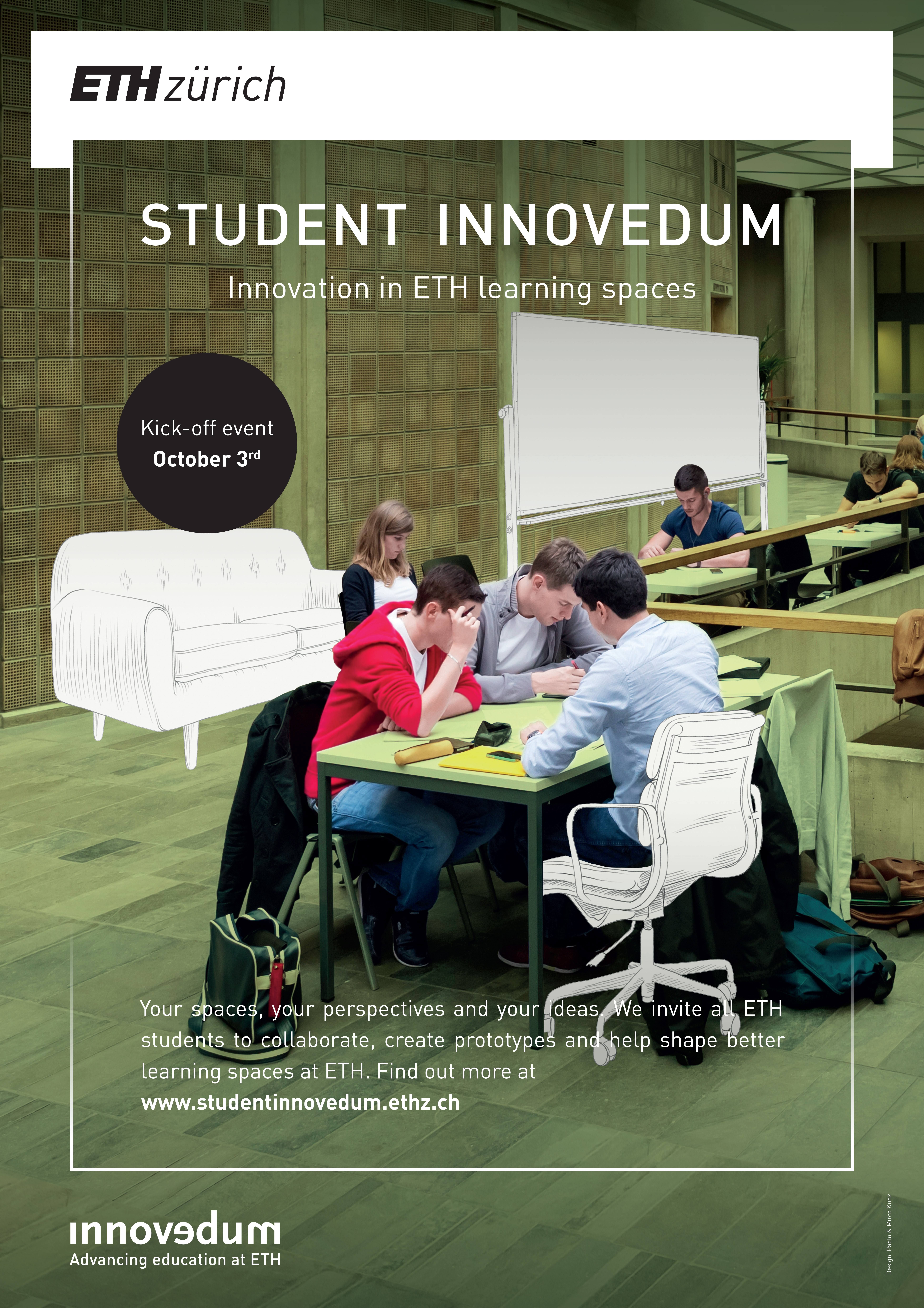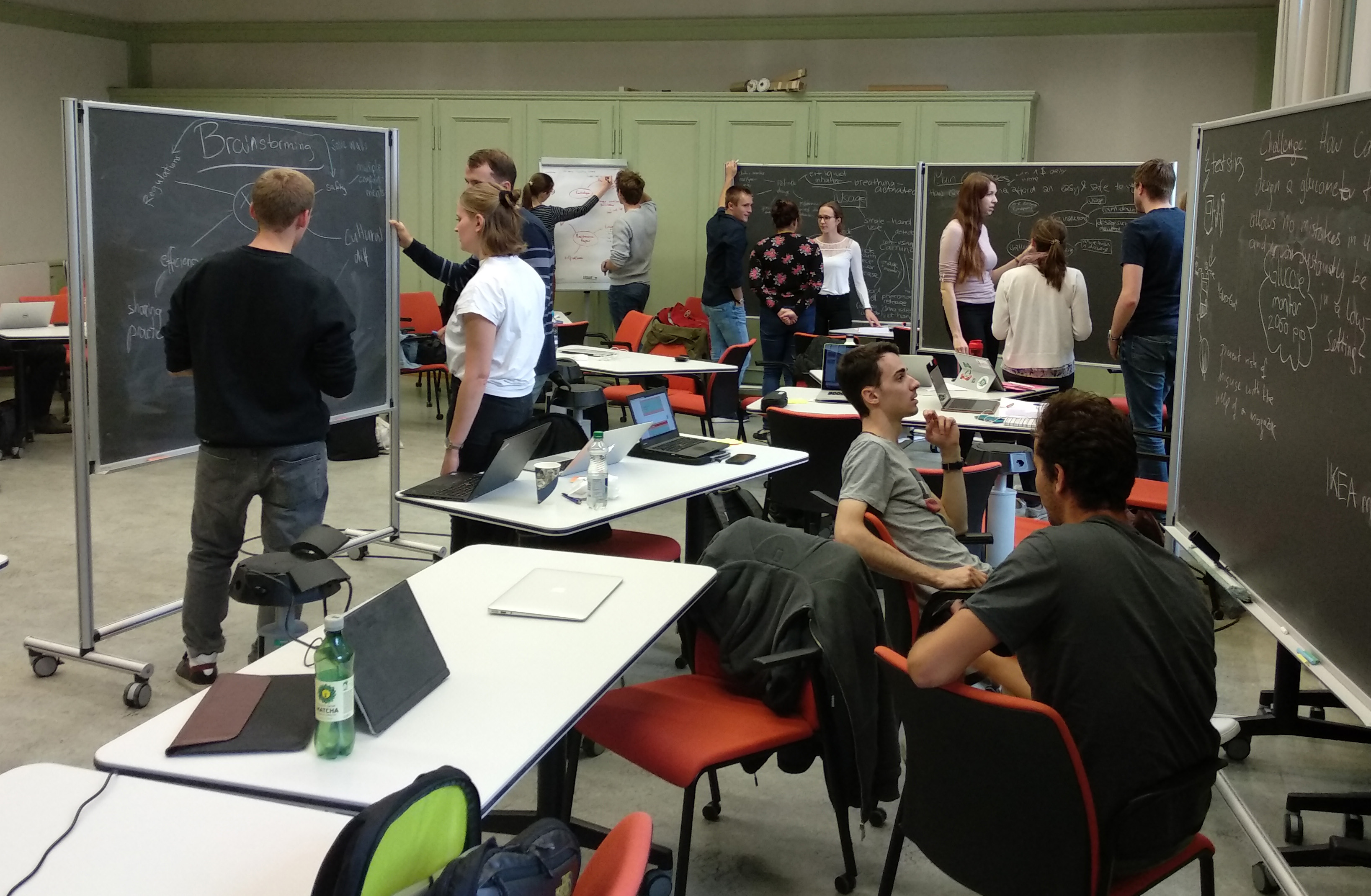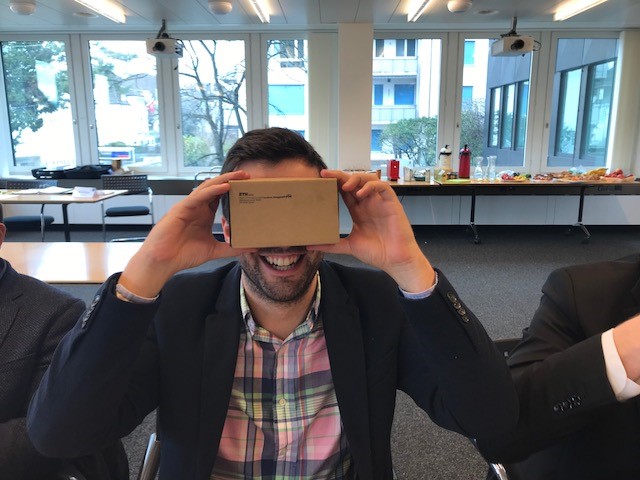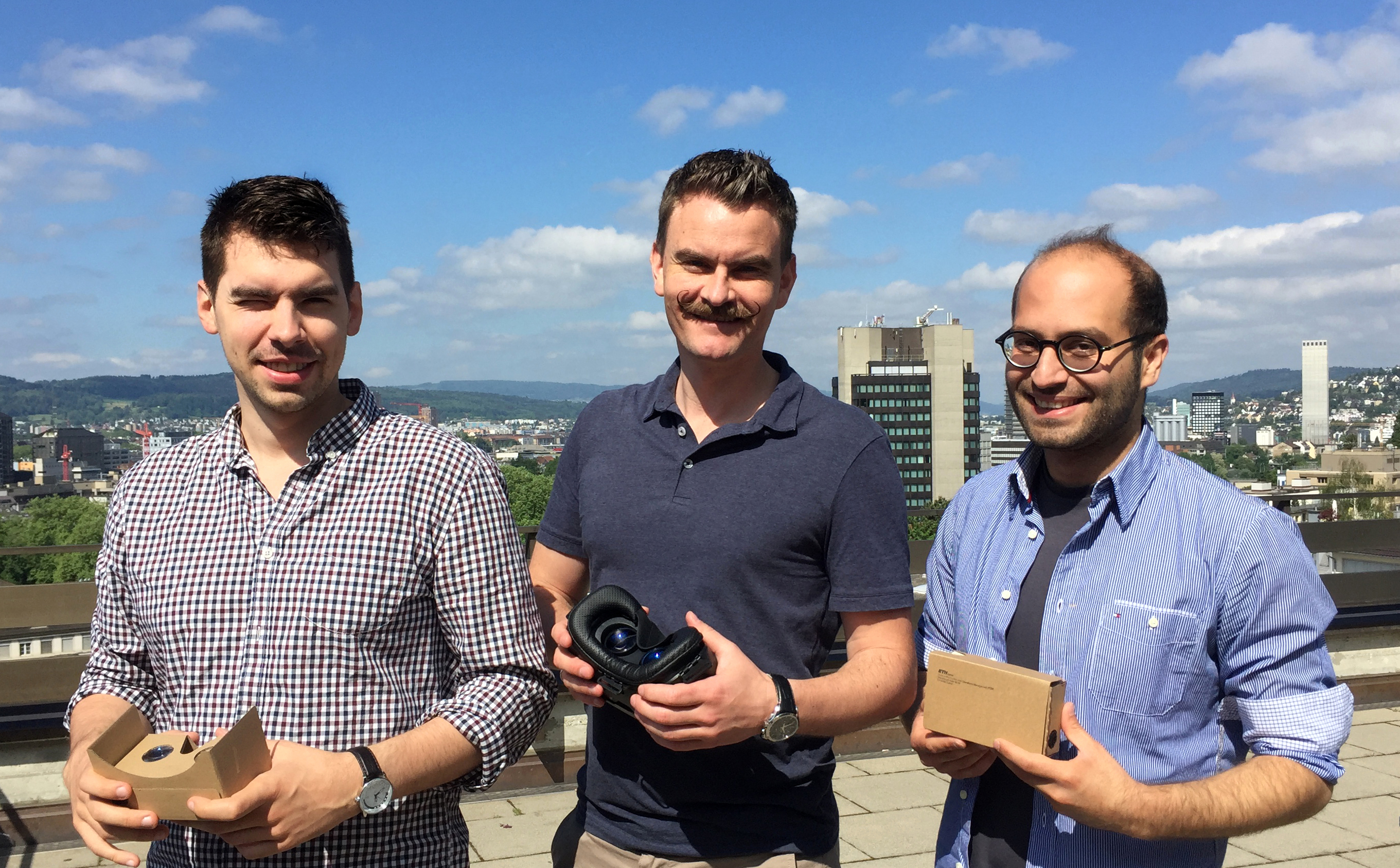Innovation in Learning – Powered by students
For several years, the team in the unit of Educational Development and technology (LET) has been inviting and supporting ETH students to share their ideas for enhancing learning here at our institution. Specifically, this has been orchestrated through the annual Student Innovedum programme, where students can develop the seeds of their own ideas into prototypes and fruitful initiatives. Their projects have contributed to discussion all over ETH. This includes within the Students’ Association (VSETH) and the library.
One observation we have made over the years, is that students are incredibly generous with their energy and are willing to make a contribution to the wider learning environment, if they are given space and time to make themselves heard. Therefore, we ask that lecturers considering raising their students’ awareness of the upcoming kick-off event of Student Innovedum on October 3rd, 2018.
At this year’s Student Innovedum, we are asking students to focus on the very learning spaces where they spend so much of their time. Reimagining learning spaces has shown to be of central importance to students. Therefore, we are inviting them to use their experience, perspectives and ideas to develop concrete projects for enhancing learning spaces. These projects can then be shared with the wider ETH community and internal stakeholders at this year’s inaugural Learning and Teaching Fair.
Engaging students actively within and beyond the classroom is an important topic. In a conversation with Polykum, the ETH student magazine, Prof. Dr. Sarah Springman explicitly stated that students should not be shy about sharing their ideas, that they should contribute actively to the campus dialogue. This means that those of us working with students need to continue to open up opportunities for students to become part of meaning discussion. Student Innovedum is one opportunity for ETH to recognise the potential in their ideas and to value their contributions to our community beyond their role as learners, however there is always room for more such spaces.





